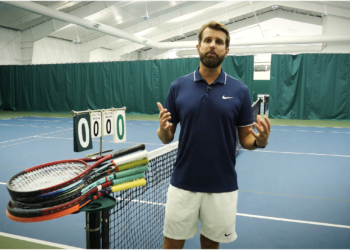While you may dream of being a star tennis player it’s not all glory and smiles. Professional athletes can face long stretches of international travel, sleep deprivation, intense pressure to perform, and loneliness. Mental illness in athletes can often be triggered by these conditions.
And just like the rest of us, they deal with real life situations during their careers that they don’t speak about at the press junkets. Deaths in the family, divorce, marriages, births, children growing up. We are all subject to the same laws of human existence.
Learning how to manage both wins and loses is an important skill for any athlete to learn, professional or not. Given the right mindset, competition can be a valuable part of life.
But mental illness does not discriminate. It does not care if you are a tennis player. It can affect even the most seemingly well-balanced individuals. That’s why the WTA acknowledges and helps female tennis players who might be suffering.
Mental Illness In U.S. Athletes
According to Newsweek one in five Americans suffer from some type of mental disorder. And while getting help is difficult for all, it is often completely ignored in athletes, both by themselves and those around them.
Take for example Titus Young. The 23-year-old ex-Lions wide receiver was arrested three times in 12 days for incidents like drunk driving and stealing. Young’s father pleaded with the community to understand his son was suffering from mental illness, but people had little sympathy for his situation.
We often think of athletes as invincible, maybe because they can do things we wish we could do. But they are not.
The WTA Helps Fights Mental Illness in Athletes
The WTA seeks to educate all players on both physical and mental health and to identify early the players that might need help. Over the past 20 years the organization designed player development programs to guide athletes through healthy growth in the sport.
The direction of Kathy Martin, the WTA’s Senior Director of Athlete Assistance and a qualified counsellor and physiotherapist, is invaluable. With her guidance, the WTA offers resources and information for mental and emotional well-being to all tennis players.
To celebrate the recent World Mental Health Day, the WTA teamed up with beloved health, beauty and wellness brand Philosophy. Their Hope & Grace Project helps people understand women who might be suffering from mental health problems.
“You are not alone. It’s okay to ask for help. Even successful pro athletes need to do that sometimes,” wrote the WTA.
If you or someone you know is in need of immediate assistance contact the National Alliance On Mental Illness helpline.




